19 Oct State of China’s Auto Market – October 2022
NEV sales momentum continues with continued domination of BYD
Post-lockdown stimulus measures inflate sales of low-priced gasoline powered vehicles
Comments from Bill Russo, Founder & CEO of Automobility Ltd.
2.6 million vehicles were sold in China in September, the highest selling month thus far in 2022. While this number seems encouraging, it is is important to note that sales typically rise toward the end of the calendar year and we expect an especially strong 4th quarter performance this year, as post-lockdown incentives are due to expire at year end. It is important to note that the current incentives favor lower priced, low displacement gasoline powered vehicles.
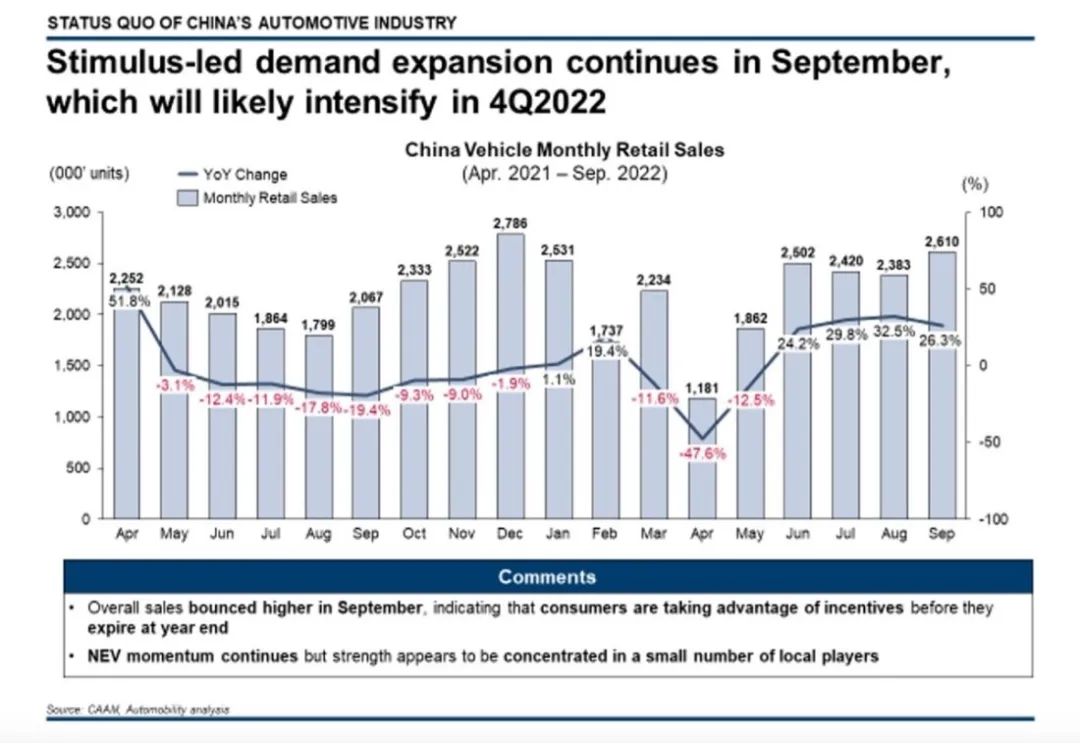
Through the 3rd quarter, China auto industry sales are up 4.4% versus the same period in 2021. While this is impressive on the surface, especially when considering COVID-related lockdowns and supply chain disruptions, it is important to highlight the underlying weakness inside these numbers. Gasoline powered (ICE) vehicle sales are down 10% in 2022 in spite of the fact that post-lockdown stimulus measures have targeted these types of vehicles. By comparison, New Energy Vehicle (NEV) sales are up 113.6% from last year, without added stimulus support. In addition, commercial vehicle sales are down 34.2% and are on track for their worst year in nearly a decade.
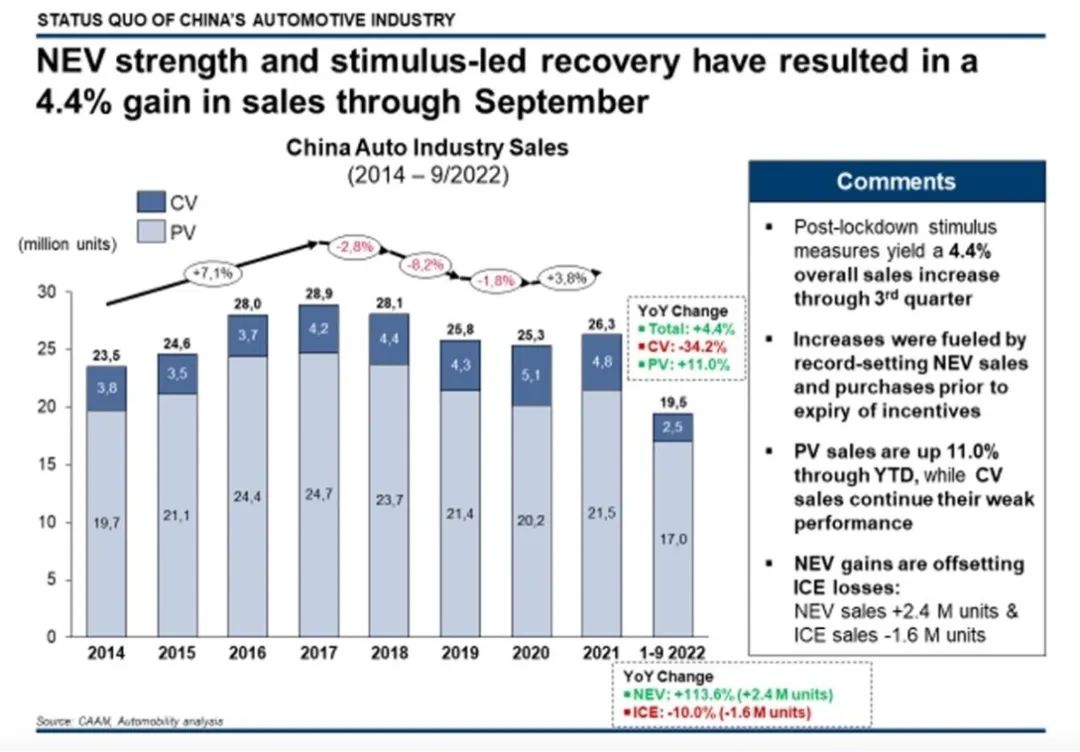
By way of comparison, used car sales are down 7.6%, which is a strong indication of weakness in the market. Lower used car sales is an indication that consumers are holding on to their cars longer – a bellwether indicator of economic stress.
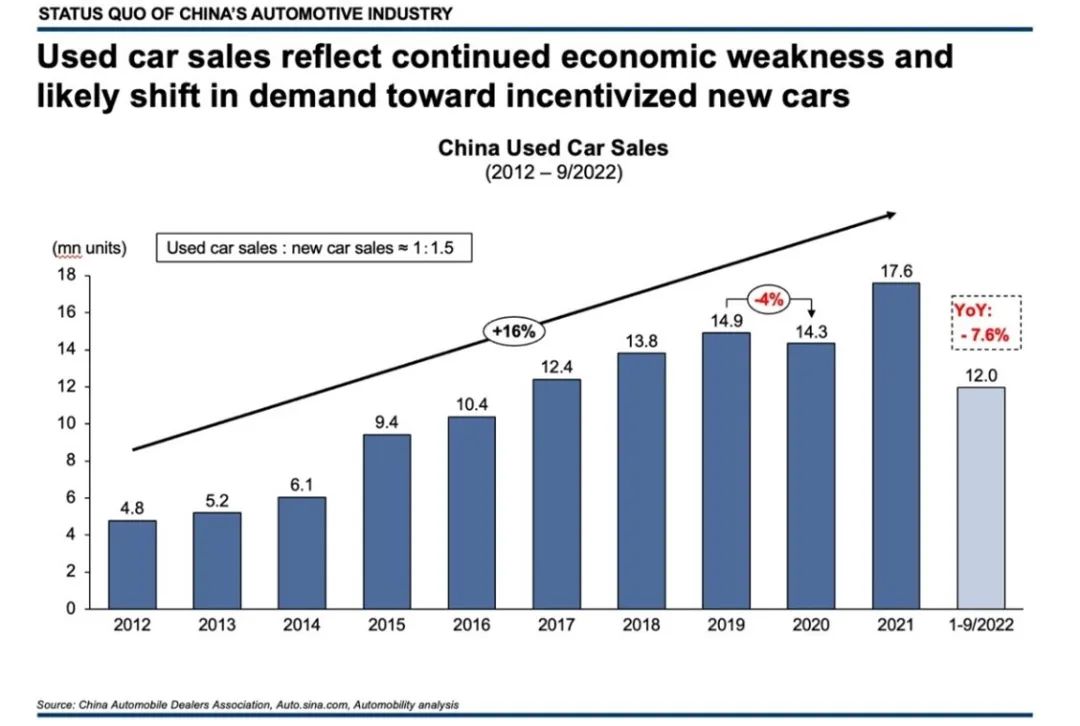
In addition, stimulus measures favor sales of lower-priced new vehicles which compete for the value-oriented the used car shopper. Used car sales have been down for 7 consecutive months.
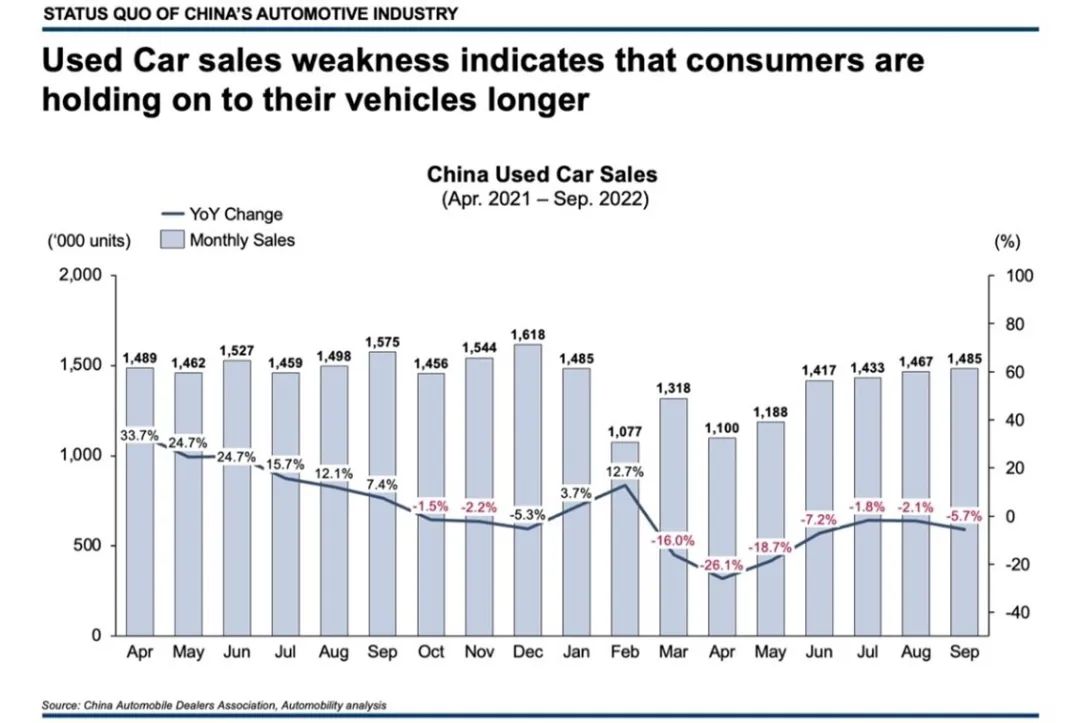
NEV sales set another record in September, surpassing 700k units sold for the first time, increasing 42k units from the record set in August. It is noteworthy that virtually all of the month-over-month gains appear to come from NEV segment leaders BYD (+22k) and Tesla (+43k), which signals that the NEV market is already highly concentrated, raising questions over the sustainability of the growth of this segment of the market.
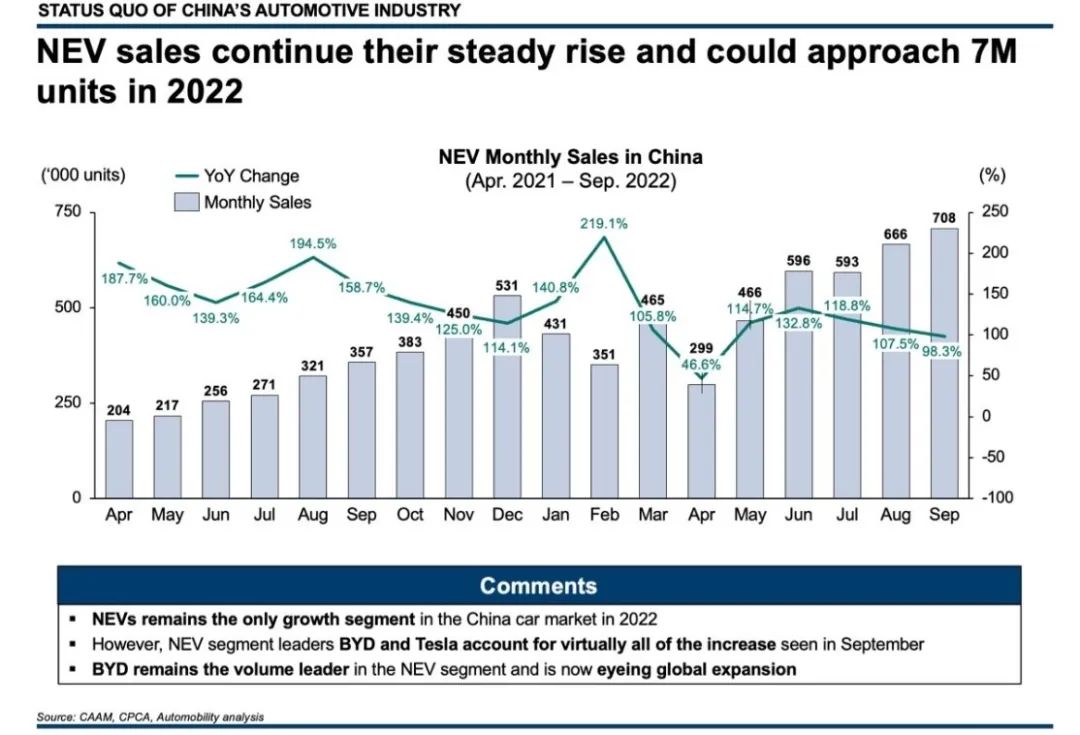
Sales over the past 19 months clearly signal a secular shift towards NEVs. Over this period, CAGR for NEV is +106% while ICE decreased 11.2% over the same period, which was likely propped up by incentives in recent months. Within the NEV segment, both BEV and PHEV set new sales records in September, with 539k and 169k units sold, respectively.
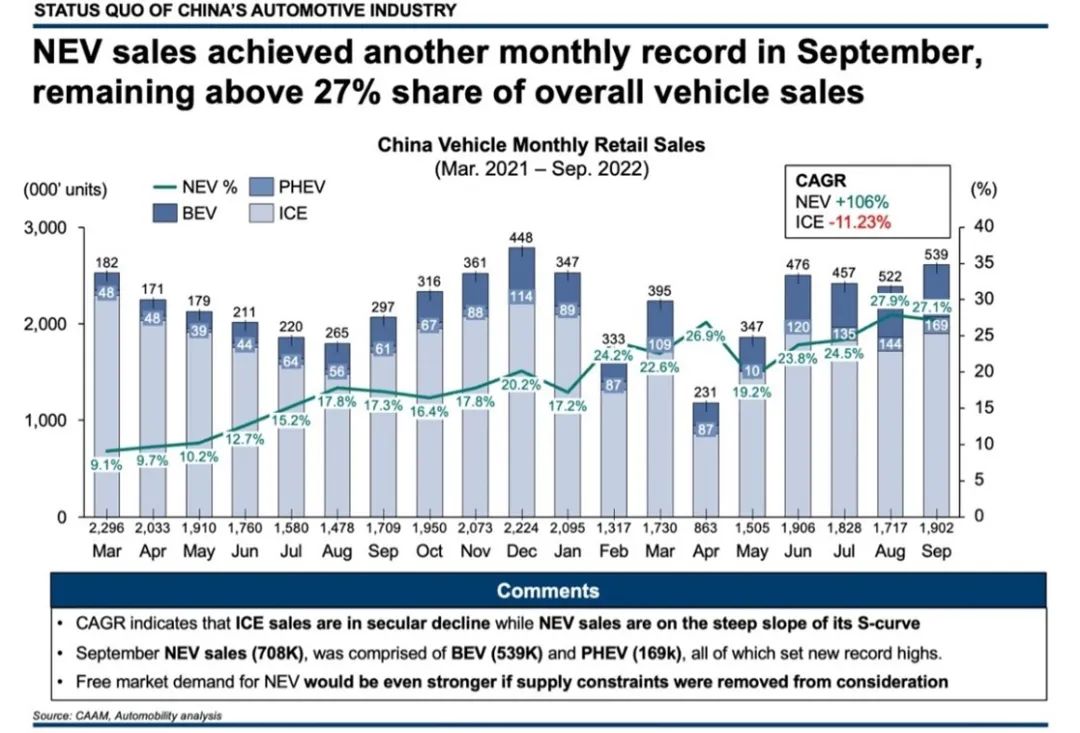
BYD once again dominated the September leaderboard , with over 191k units sold – more than doubling the monthly sales of second-placed Tesla. BYD and Tesla accounted for over 40% of China’s NEV sales, clearly outpacing the overall market. While the NEV segment is growing rapidly, it is a far more concentrated market that is dominated by a small number of players.
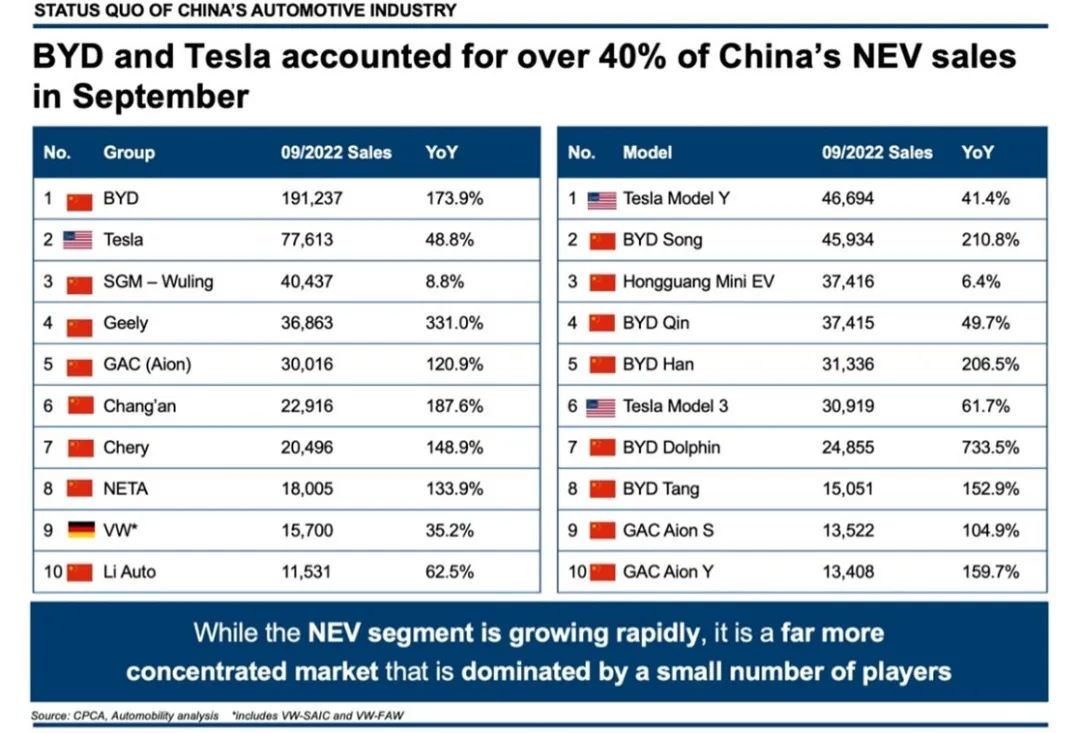
BYD currently sells 6 of the top 10 new energy vehicles in China. The only foreign company on the September leaderboard is Tesla. The NEV sales leaderboard is dominated by affordably priced local brands.
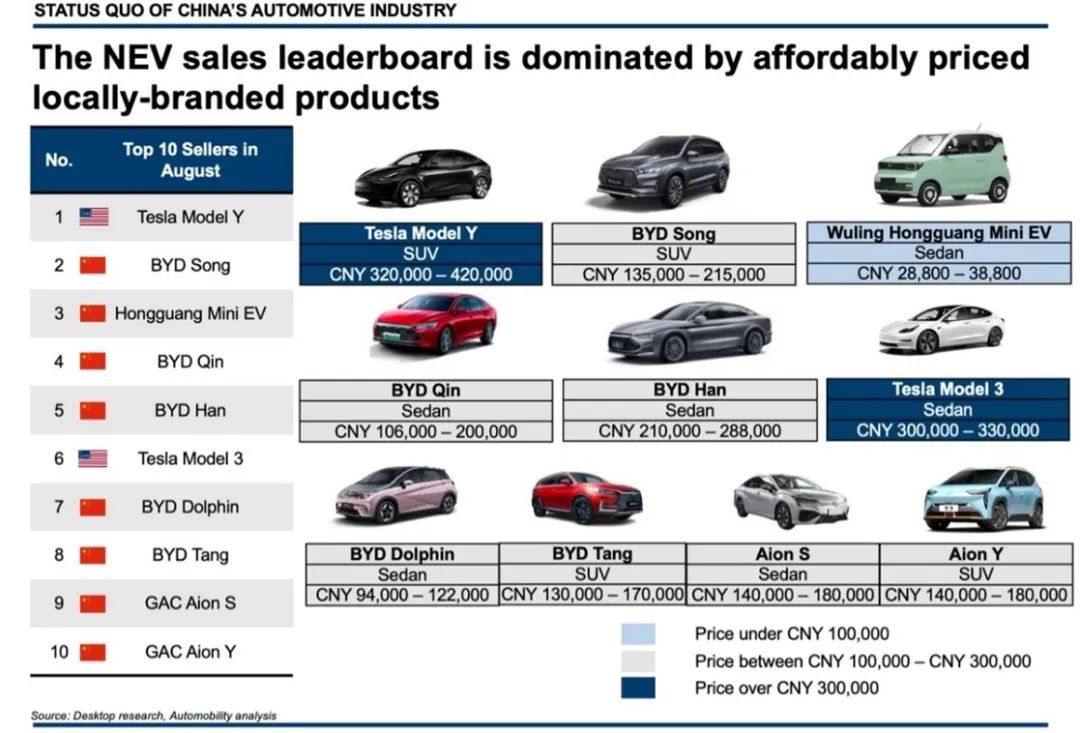
BYD’s dominance of the electric vehicle segment is underscored by comparing them with the “top 5 EV peer group”. Despite Tesla’s strong performance in September, BYD still outsold the next four EV players combined in September.
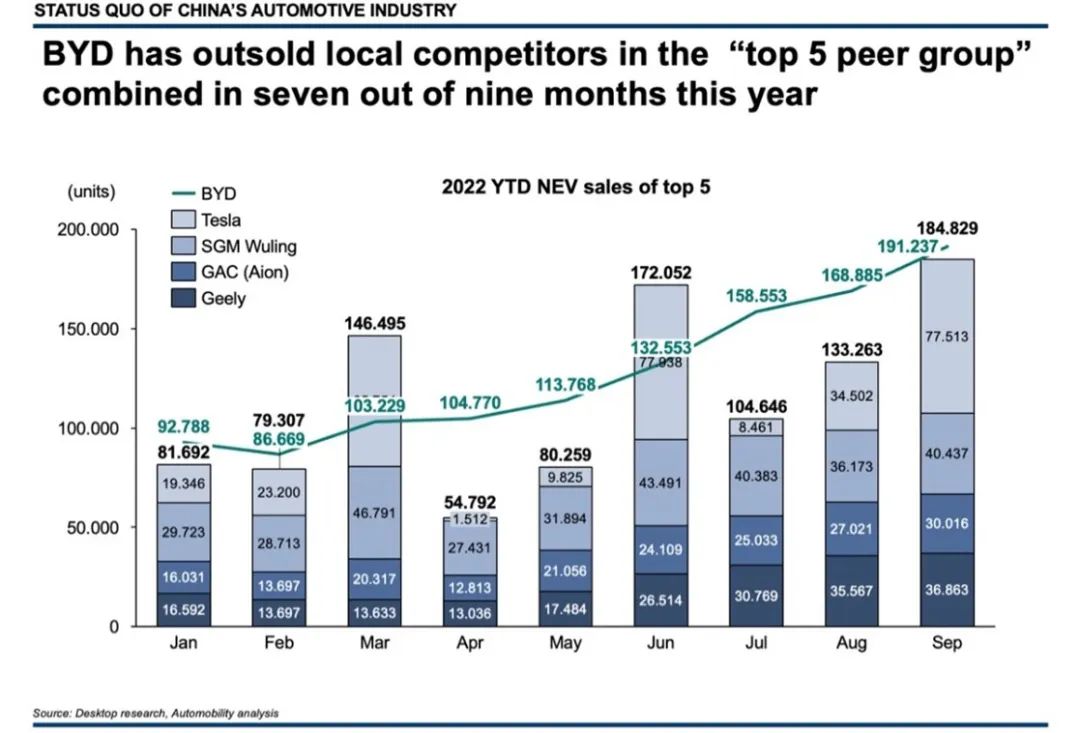
As expected, Tesla reported record sales in September from its Shanghai gigafactory. The company prioritizes deliveries to areas remote from the Shanghai factory and ships locally at the end of each quarter to address local order backlog. In September, however, Tesla was left with 22,000 cars inventory in Shanghai, indicating weakened local demand. A drop in China demand could become a problem for Tesla as the Shanghai plant has just been expanded and the Berlin gigafactory is expanding production.
It is also worth noting that Tesla’s smart EV competitors (NIO, Li Auto, Xpeng) have not been able to approach their best-ever month of June 2022, when they sold over 41k units. These companies sold slightly more than 30k units in September, far less than half of Tesla’s sales, raising questions over the sustainability of the performance of the smart EV segment.
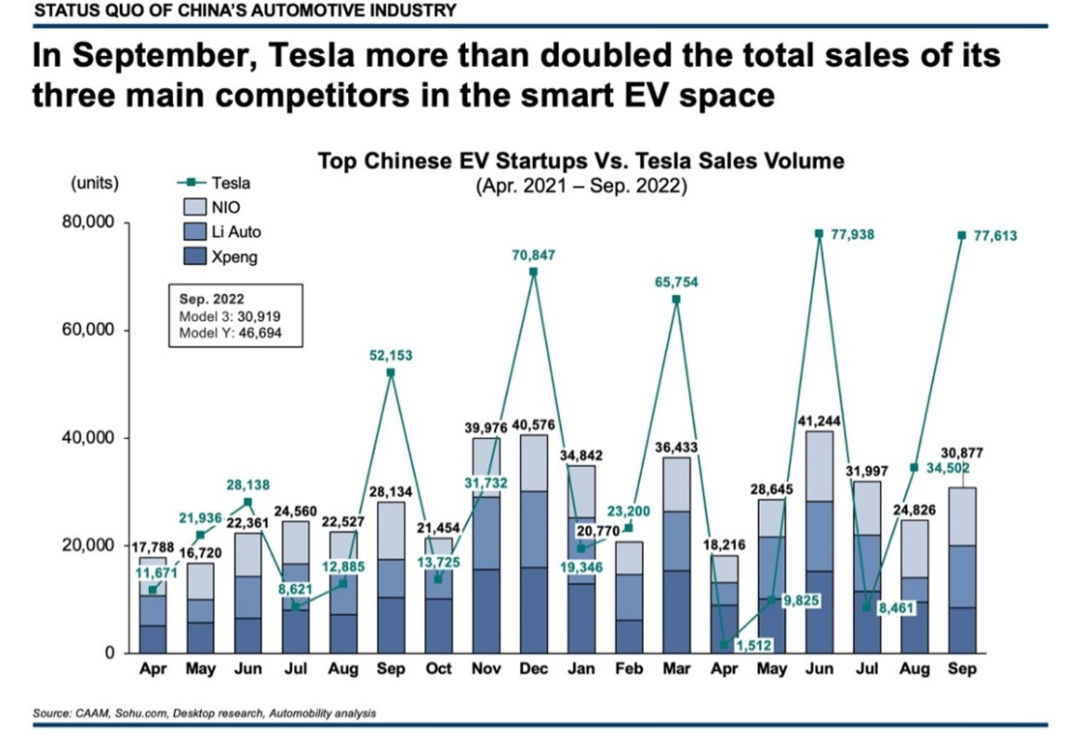
A highly concentrated NEV market, combined with weaker performance of the premium smart EV segment will place additional pressure on manufacturers to sell-down their capacity overhang. This will pressure EV makers to push sales into overseas markets.
Several questions to consider:
– What happens after the post-lockdown stimulus measures expire at year end?
– Is there hope for Commercial Vehicle sales recovery?
– What can foreign brands do to get in the EV game in China? What will happen if they can’t?
– There are way too many sub-scale EV companies: what will become of them?
– Are efforts to sell Chinese EVs in overseas markets a show of confidence or a result of overcapacity in China?
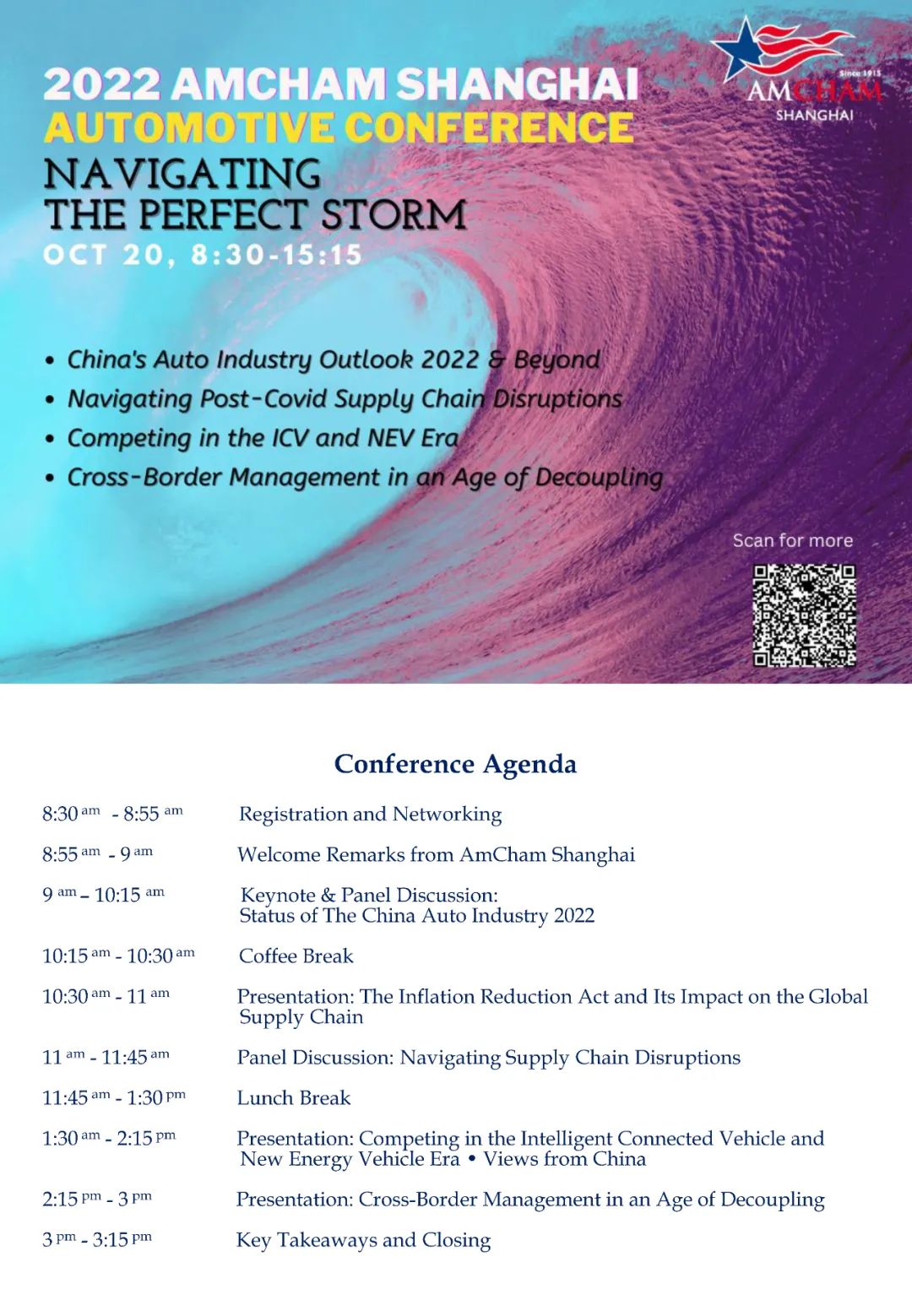
If you wish to join our AmCham Shanghai Annual conference – in person or online, you can register here:
Registration ⇽ 2022 AmCham Shanghai Automotive Conference | AmCham Shanghai
October 20, 2022 Thursday
About Bill Russo
About Automobility
Our partners are former senior executives at large corporations and/or senior consultants at leading management consulting firms. We believe clients would benefit the most from a combination of consultants with substantive experience in consulting and in line management.
Therefore, we organize ourselves into a core team augmented by an extensive “extended team members” with a large variety of skills and expertise.
Contact us by email at info@automobility.io



Sorry, the comment form is closed at this time.